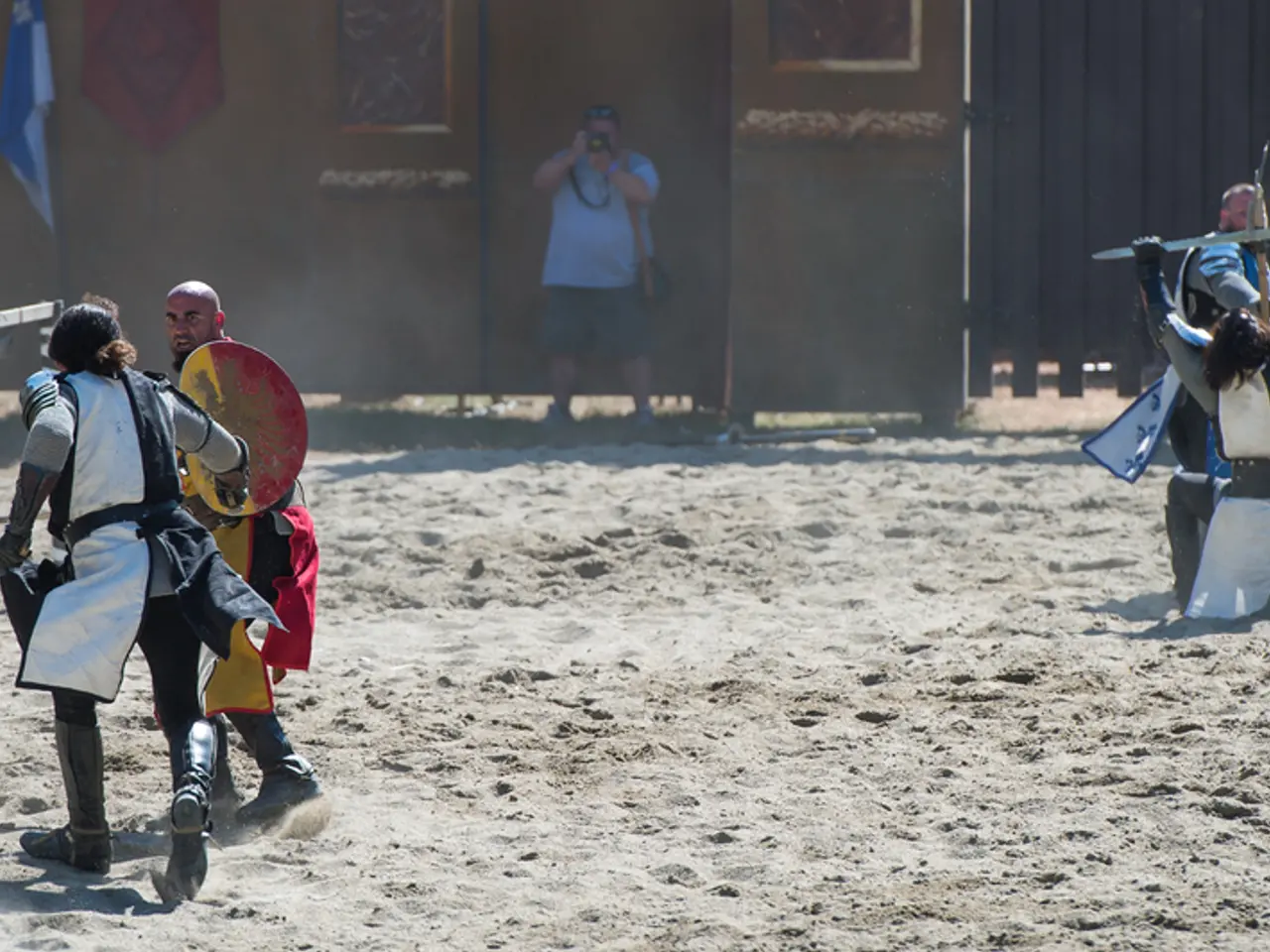Thailand denies proposal for temple seizure
Phnom Penh is urging the international community to pressure Thailand to honor the ceasefire agreement, not just in words but through concrete action, following the intensified border clashes around the Ta Kwai Temple in July 2025.
The recent conflict, which escalated into armed clashes from July 24 to July 28, involved artillery, rocket fire, drone surveillance, and ground offensives. A ceasefire was agreed upon to take effect at midnight on July 28, halting the fighting, although the exact status of control over Ta Kwai Temple remains uncertain due to landmine dangers and incomplete territorial gains.
The timeline of events leading up to the ceasefire is as follows:
- May 2025: Rising tensions with border skirmishes, including a Cambodian soldier killed in late May near disputed areas.
- July 24: Hostilities intensified early morning with Cambodian drones detected near Prasat Ta Muen Thom. Armed clashes began near Ta Kwai Temple, involving gunfire and rocket attacks along several kilometers of border.
- July 24-28: Intense fighting with Cambodian forces launching offensives and Thai troops responding, including use of air strikes such as F-16 bombings on Cambodian positions.
- July 28 Midnight: Ceasefire ordered by Cambodian leader Hun Sen's BHQ Special Forces was followed by Thailand’s announcement of partial control but with uncertainty over the temple’s exact status due to landmines.
Reactions and statements from both sides have been varied. Cambodia actively sought to secure strategic areas before the ceasefire, with Major General Nea Wong leading forces that engaged Thai troops directly. Thailand’s 31st Infantry Regiment pushed back Cambodian advances, and Major General Winthai Suwaree, spokesperson for the Thai Army, stated they controlled much of the area but acknowledged ongoing challenges around the temple due to landmines.
Public confusion arose from a Cambodian faith influencer posting images inside Ta Kwai Temple, initially interpreted as a sign of Cambodian full control, but this was later clarified to be unrelated to military presence. The dispute occurred against a backdrop of historical tensions dating back to territorial disagreements over UNESCO World Heritage nominations and border demarcations going back decades, with the International Court of Justice ruling on parts of the border but leaving some areas contested, including near Ta Kwai Temple.
Control of Ta Kwai Temple remains ambiguous because of unexploded landmines and contested territorial claims. Deep-rooted nationalist sentiments and political motivations in both countries continue to fuel border disputes. Diplomatic efforts, including ceasefire agreements, have so far stopped fighting but have not resolved core territorial disagreements. Regional powers like China play roles behind the scenes as potential mediators, given their strategic interests and alliances, particularly with Cambodia.
Ongoing issues include the control of Ta Kwai Temple, the presence of unexploded landmines, and the resolution of the core territorial disagreements. The Thai Mine Action Centre (TMAC) and related agencies have recovered 384 pieces of ordnance from border areas in the four northeastern provinces between Aug 1 and 9, including BM-21 rockets, artillery shells, mortar rounds, and other types of explosives.
In addition, both sides have agreed not to move troops - including patrol units - toward the other's positions, according to a joint statement issued after the meeting. However, three Thai soldiers were injured on Saturday after stepping on a PMN-2 landmine near Chong Don Ao-Krisana in Si Sa Ket.
The Ta Kwai temple, located on the disputed border between Thailand and Cambodia, remains a contentious issue. Cambodian allegations of civilian casualties are unfounded, according to Maj Gen Winthai. The Royal Thai Army denies an allegation by Cambodia that they were planning to seize the Ta Kwai temple. The Thai military strictly follows international rules of engagement and limits its strikes to military targets.
The recent border dispute between Thailand and Cambodia over Ta Kwai Temple escalated into intense armed clashes from July 24 to July 28, 2025, with both sides contesting control of the temple area. A fragile ceasefire is currently in place, but key issues remain unsettled.
Despite the fragile ceasefire, the control of the Ta Kwai Temple remains uncertain due to landmine dangers and incomplete territorial gains. The ongoing conflict, rooted in deep-rooted nationalist sentiments and political motivations in both countries, has positioned war-and-conflicts, politics, and crime-and-justice as prominent topics in general-news.




